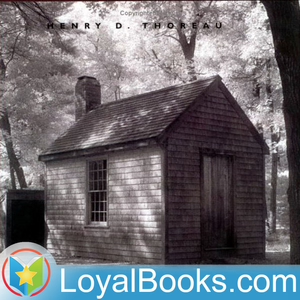
Eye glasses, spectacles, and eyeware for Shakespeare's lifetime
03/11/24 • 38 min
Shakespeare uses the word “spectacles” 8 times across his works, and talks about glass eyes in King Lear. In A Winter’s Tale Leontes is talking with Camillo when he indicates Camillo should have seen something clearly because of the thickness of his eye glass. It makes sense to think that people in the 16-17th century would have suffered from near sighted ness or farsighted ness and other opthamlogic disorders, but what does the historical record show about how these sight related issues were dealt with in Shakespeare’s lifetime? Were there glasses that people wore on their face, and if so, who was making them, and out of what? To help us explore the history of eye glasses, spectacles, and the science of improving your vision forShakespeare’s lifetime, we are talking today with Dr. Neil Handley who is not only a historian of eye ware specifically, but serves as Curator of the British Optical Association Museum at theCollege of Optometrists in London.
Get bonus episodes on PatreonHosted on Acast. See acast.com/privacy for more information.
Shakespeare uses the word “spectacles” 8 times across his works, and talks about glass eyes in King Lear. In A Winter’s Tale Leontes is talking with Camillo when he indicates Camillo should have seen something clearly because of the thickness of his eye glass. It makes sense to think that people in the 16-17th century would have suffered from near sighted ness or farsighted ness and other opthamlogic disorders, but what does the historical record show about how these sight related issues were dealt with in Shakespeare’s lifetime? Were there glasses that people wore on their face, and if so, who was making them, and out of what? To help us explore the history of eye glasses, spectacles, and the science of improving your vision forShakespeare’s lifetime, we are talking today with Dr. Neil Handley who is not only a historian of eye ware specifically, but serves as Curator of the British Optical Association Museum at theCollege of Optometrists in London.
Get bonus episodes on PatreonHosted on Acast. See acast.com/privacy for more information.
Previous Episode

The Battle of Lepanto, 1571
In 1571, William Shakespeare was only 7 years old, but the naval battle that occurred that year was pivotal forEngland, and indeed the Christian world, that continued to be celebrated and written about for centuries afterShakespeare. The Battle of Lepanto is the last naval battle fought exclusively with rowing vessels, known as galley warfare, and overall was a surprising naval victory for Catholics. Even James VI wrote poetry titledLepanto, that was in high demand as printed literature in England well into the start of the 17th century. Here today to discuss with us the geopolitics of the day and the Ottoman Empire that Shakespeare refers to as “the general enemy Ottoman” in 1603, is our guest and author of the book titled Battle of Lepanto, 1571, Nic Fields Get bonus episodes on Patreon
Hosted on Acast. See acast.com/privacy for more information.
Next Episode

What is Wattle and Daub, anyway?
For centuries, the construction method of wattle and daub has been used to contruct buildings.For Shakespeare’s lifetime, the Tudor style of house became famous for this form of construction because Tudor homes featured exposed beams held together in the wattle anddaub style. For the uninitiated, however,you may not know what constitutes a wattle or a daub, or how this method of construction was accomplished. Here today to answer these questionsand share with us not only how the process was completed for Shakespeare’s lifetime, but what methods modern preservationist use when recreating this method on conservation projects thattry to save old buildings from ruin is our guest, and expert in wattle and daub, DrTony Graham Get bonus episodes on Patreon
Hosted on Acast. See acast.com/privacy for more information.
If you like this episode you’ll love
Episode Comments
Generate a badge
Get a badge for your website that links back to this episode
<a href="https://goodpods.com/podcasts/that-shakespeare-life-181592/eye-glasses-spectacles-and-eyeware-for-shakespeares-lifetime-46437254"> <img src="https://storage.googleapis.com/goodpods-images-bucket/badges/generic-badge-1.svg" alt="listen to eye glasses, spectacles, and eyeware for shakespeare's lifetime on goodpods" style="width: 225px" /> </a>
Copy




